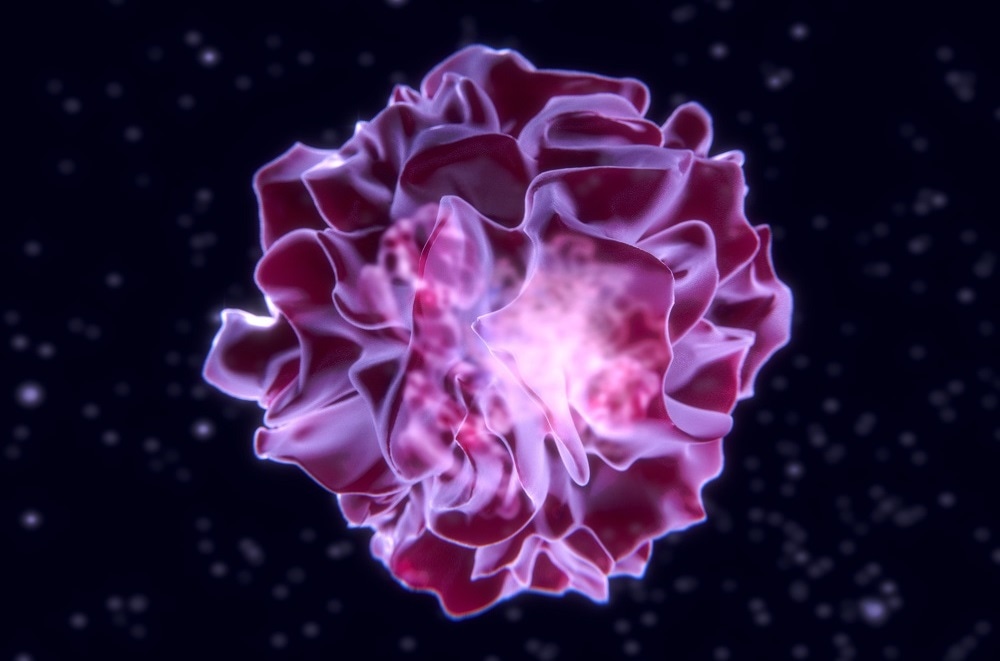
Scientists discover the molecular trigger of necroptosis
Researchers in Australia have uncovered a trigger for an immune-related cell death pathway called necroptosis. It is hoped that the discovery may provide new targets for the treatment of a range of disorders, including immune disorders and several types of cancer.
 Image Credit: Juan Gaertner / Shutterstock
Image Credit: Juan Gaertner / ShutterstockNecroptosis is a form of programmed cell death occurring in vertebrate cells. It is actioned by immune cells, which rupture cellular membranes to release the intracellular components.
Necroptosis is involved in the regulation of normal embryonic development, T-cell proliferation, and chronic intestinal inflammation as well as being used in response to infection by pathogens that inhibit classic apoptosis.
Excessive or inappropriate activation of necroptosis is thought to occur in a variety of diseases and conditions, including stroke, organ transplant injury and kidney disease, immune disorders and cancer.
Some currently available anti-cancer drugs, called BH3-mimetics, target defects that prevent cells from undergoing programmed cell death. It is hoped that further elucidation of the pathways involved will enable the development of novel anti-cancer treatments.
A key protein in the initiation of necroptosis is the pseudokinase mixed lineage kinase domain-like (MLKL). It has been well studied in several model systems and is known to be activated by phosphorylation by the protein kinase RIPK3.
For the first time, necroptosis and MLKL activation has been studied in human cells to investigate the role it plays in the development of cancer.
A research team from the Walter and Eliza Hall Institute in Melbourne assessed the effect of several MLKL mutations found in human cancers on cell death by necroptosis.
The team also discovered that the necroptosis pathway in humans has a number of crucial differences from the models used in previous research of programmed cell death.
MLKL is always present in human cells but is tightly controlled so it remains inactive until a problem is detected, and only then will it signal to the immune system to kill a cell. It is beneficial to cancer cells to inhibit this process in order to ensure survival.
For the first time, the dormant MLKL and activation of the protein through its binding to RIPK3 have been visualised in human cells.
Although the team have identified the molecular trigger for initiating necroptosis in human cells and demonstrated its role in cancer development, further research is needed to identify additional checkpoints that ensure the very tight regulation of MLKL inhuman cells.
Importantly, identification of the molecular pathway triggering necroptosis in human cells has provided novel potential therapeutic targets for the development of new treatments for a range of disorders and cancer.



































No hay comentarios:
Publicar un comentario